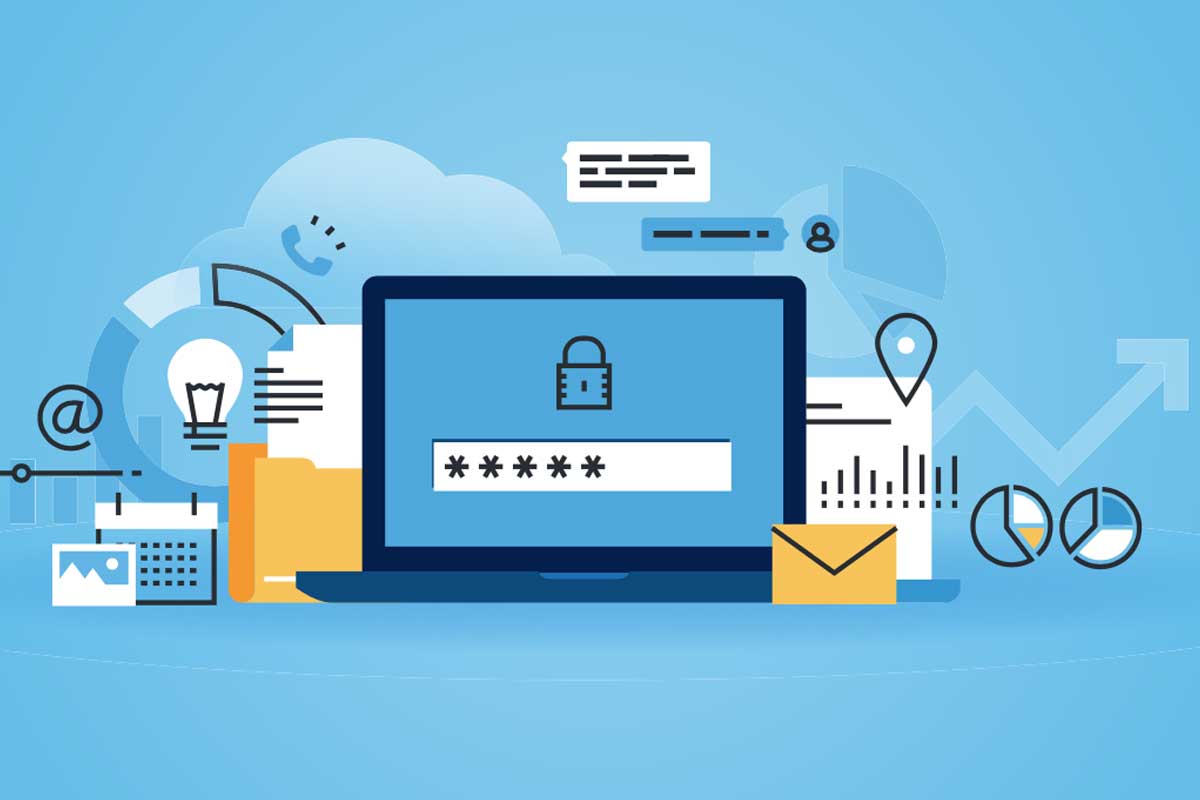Introduction
In today’s digital age, having a strong online presence is crucial, especially for students and job seekers. This article will delve into the significance of establishing and securing your online identity. With the vastness of the internet, understanding how to navigate your digital footprint can not only enhance your career prospects but also protect you from various online threats. We will explore the definition of online presence, the risks associated with it, actionable steps to secure it, available tools, and best practices for social media usage.
Understanding Online Presence
Definition of Online Presence
Online presence refers to how an individual or organization appears on the internet through various platforms, including social media profiles, websites, blogs, and online forums. It encompasses all the digital footprints created by activities such as posting on social media, commenting on articles, and participating in online discussions. Essentially, it is the representation of yourself on the internet and is often the first impression potential employers or peers may have of you.
The nature of your online presence can influence opinions about your professionalism, character, and capabilities. In a competitive job market, a well-curated online presence can set you apart from other candidates. A positive online identity can demonstrate skills, interests, and values that align with the expectations of employers and educational institutions.
Business Proposal: Korean TV Show Detailed Review
Importance of Online Presence for Students and Job Seekers
For students, having a positive online presence can facilitate networking opportunities, enhance educational prospects, and promote personal branding. University admissions and scholarship committees often research applicants’ online footprints to gauge their involvement, character, and interests beyond academic achievements. Thus, students should be mindful of how they present themselves online, ensuring it aligns with their career aspirations.
For job seekers, a well-maintained online presence can attract the attention of recruiters and employers. Many companies have adopted digital recruiting methods, where they review candidates’ LinkedIn profiles, websites, and social media accounts as part of the hiring process. A strong online presence can showcase your skills, experiences, and professional network, making you a more appealing candidate. Therefore, understanding and managing your online identity is vital in today’s job market.
Common Online Risks
Identity Theft
Identity theft is one of the most concerning risks of having an online presence. Cybercriminals can steal personal information such as Social Security numbers, bank details, and passwords, leading to severe financial and emotional repercussions. Students and job seekers, often less cautious about sharing personal information online, need to be particularly vigilant.
The implications of identity theft can be long-lasting, affecting credit scores, job applications, and personal relationships. It is essential to recognize the signs of identity theft and take proactive steps to protect yourself. Regularly checking bank statements, credit reports, and online accounts for unauthorized activities can help mitigate the risks associated with identity theft.
Data Breaches
Data breaches occur when unauthorized individuals gain access to sensitive information stored online. Major corporations and institutions frequently face data breaches, compromising the personal data of thousands of users. Students and job seekers are often targets, as they may use the same passwords across multiple platforms, making it easier for attackers to exploit their information.
Once data is leaked, it can be used for various malicious purposes, including financial fraud and reputational damage. Awareness of the types of data breaches and their potential impact can empower individuals to take necessary precautions, such as changing passwords regularly and enabling notifications for suspicious activities on accounts.
How to Save Photos in JPG Format on iPhone?
Cyberbullying
Cyberbullying is another significant risk associated with an online presence, particularly for students. The anonymity afforded by the internet can embolden individuals to engage in harmful behavior, leading to emotional distress and negative impacts on mental health. Victims of cyberbullying may experience anxiety, depression, and social isolation, which can hinder academic performance and personal development.
It is crucial to recognize the signs of cyberbullying and to know how to seek help. Schools and organizations often provide resources for reporting and addressing cyberbullying incidents. Encouraging open communication about online experiences can help create a supportive environment and diminish the stigma associated with seeking assistance.
Steps to Secure Your Online Presence
Creating Strong Passwords
One of the foundational steps to securing your online presence is to create strong and unique passwords for each of your accounts. A strong password should be at least 12 characters long and include a mix of uppercase and lowercase letters, numbers, and special characters. This complexity makes it significantly harder for cybercriminals to guess or crack your passwords.
In addition to creating strong passwords, it is essential to avoid using easily guessable information, such as birthdays or names of pets. Utilizing a password manager can help generate and store complex passwords securely, reducing the likelihood of reusing passwords across different platforms.
Enabling Two-Factor Authentication
Two-factor authentication (2FA) adds an additional layer of security to your online accounts. By requiring a second form of verification—such as a text message code or an authentication app—2FA helps protect your accounts even if your password is compromised. Many platforms offer this security feature, making it a critical step in safeguarding your online presence.
Enabling 2FA should be a standard practice for all your major accounts, including email, banking, and social media. This added security measure significantly reduces the risk of unauthorized access and helps ensure that you remain in control of your sensitive information.
Managing Privacy Settings on Social Media
Social media platforms provide users with various privacy settings that can help control who sees your content and personal information. It is vital to review and adjust these settings to maintain a secure online presence. By restricting access to your profile and posts, you can limit exposure to potential threats and unwanted attention.
Regularly auditing your friend lists and followers can also be beneficial. Removing connections that no longer serve you or that seem suspicious contributes to a cleaner and safer online environment. Additionally, practicing caution when accepting friend requests can prevent potential breaches in privacy.
How to Delete or Deactivate Instagram Account on Mobile and Laptop?
Regularly Monitoring Your Online Reputation
Regularly monitoring your online reputation is essential for maintaining a positive digital identity. Search yourself periodically to see what information is publicly accessible. This practice can help you identify any negative content or outdated information that may misrepresent you.
Utilizing tools like Google Alerts can notify you when your name appears online, enabling you to address any issues promptly. Engaging in positive online behaviors, such as sharing insightful content and participating in discussions, can also enhance your online reputation over time.
Being Cautious with Personal Information
Exercise caution when sharing personal information online. Many users underestimate the risks involved in oversharing on social media and other platforms. Details such as your location, contact information, and even vacation plans can be exploited by malicious actors.
Before posting, consider whether the information you are sharing is appropriate or necessary. Adopting a mindset of privacy-first can help protect your identity and personal safety in an increasingly connected world. Think critically about the potential consequences of your digital footprint.
Tools and Resources for Online Security
Antivirus Software
Antivirus software is an essential tool for protecting your devices from malware, viruses, and other online threats. Many reputable antivirus programs offer real-time protection, scanning downloads and websites for potential risks. Investing in a reliable antivirus solution can safeguard your sensitive information and provide peace of mind while browsing the internet.
It’s important to keep your antivirus software updated to ensure that you have the latest security features and definitions. Regular updates help protect against newly discovered vulnerabilities and evolving threats, making it a critical component of your online security strategy.
Password Managers
A password manager is a valuable resource for maintaining strong security practices. These tools not only generate complex passwords but also securely store them, allowing you to access your accounts without remembering multiple passwords. By using a password manager, you can strengthen your security by ensuring that you do not reuse passwords across platforms.
Many password managers also offer additional features, such as security audits, which can identify weak or compromised passwords. By utilizing these features, you can systematically enhance your security and reduce the risk of unauthorized access to your accounts.
How To Record a Script in CorelDRAW?
Privacy-Focused Browsers
Using privacy-focused browsers can significantly enhance your online security and protect your data from tracking and profiling. Browsers like Brave and Firefox focus on user privacy by blocking ads, trackers, and other unwanted content. They also offer tools to manage cookies and other data that may compromise your privacy.
Switching to a privacy-focused browser can create a more secure and less intrusive browsing experience. Coupled with other security measures, such as using VPNs and encrypted communications, these browsers empower users to take control of their online presence.
Best Practices for Social Media Usage
Accepting Friend Requests Wisely
When it comes to social media, accepting friend requests should be approached with caution. You should only accept requests from individuals you know personally or can verify are legitimate. Cybercriminals often create fake profiles to gather personal information or spread malicious content.
Additionally, consider using features that allow you to filter friend requests or messages from unknown users. This proactive approach helps create a safer and more secure social media environment, reducing the likelihood of falling victim to scams or harassment.
Sharing Information Responsibly
Being responsible about the information you share online is crucial. Avoid posting sensitive personal information such as your address, phone number, or financial details. Understand that once something is shared on the internet, it can be challenging to remove entirely, and it may be accessed by unintended audiences.
Engaging in responsible sharing practices involves being mindful of the potential impact of your posts. Before you share, ask yourself how it may affect your reputation or privacy. This level of awareness can help maintain a positive online presence while safeguarding your personal information.
Reporting Suspicious Activity
If you encounter suspicious activity, such as harassment or potential scams, it is essential to report it immediately. Most social media platforms and websites have mechanisms in place for reporting abusive behavior or fraudulent accounts. Utilizing these resources can help protect not only yourself but also other users from potential harm.
Educating yourself about the reporting processes on various platforms can empower you to take action swiftly. Engaging in community vigilance by reporting suspicious activities contributes to a safer online environment for everyone.
Conclusion
Securing your online presence is an essential endeavor for students and job seekers alike. Understanding the risks associated with having an online identity and taking proactive measures to protect it can lead to positive outcomes in both academic and professional pursuits. By creating strong passwords, enabling two-factor authentication, and managing privacy settings, individuals can enhance their online security.
Moreover, leveraging tools such as antivirus software and password managers, along with adopting best practices for social media usage, can contribute to a more secure and positive online experience. In a world increasingly dominated by digital interactions, your online presence is often the first impression you make; making it a safe and favorable one is crucial.
Additional Resources
For further reading and tools related to online safety and security, consider exploring the following resources:





